STAKEHOLDER INTERVIEWSPerspectives from 15 global health leaders on GHIT's catalytic role and
Japan's transformational contributions to global health R&D
ACCESS
02
Tetsuo Kondo
Director
United Nations Development Programme (UNDP)
Representation Office in Tokyo
“Many government agencies do not have sufficient capacity to respond to the day-to-day health needs of their populations and ensure that all citizens have access to medical care. Supporting countries to build resilient health systems is one of the important facets of UNDP’s work.”
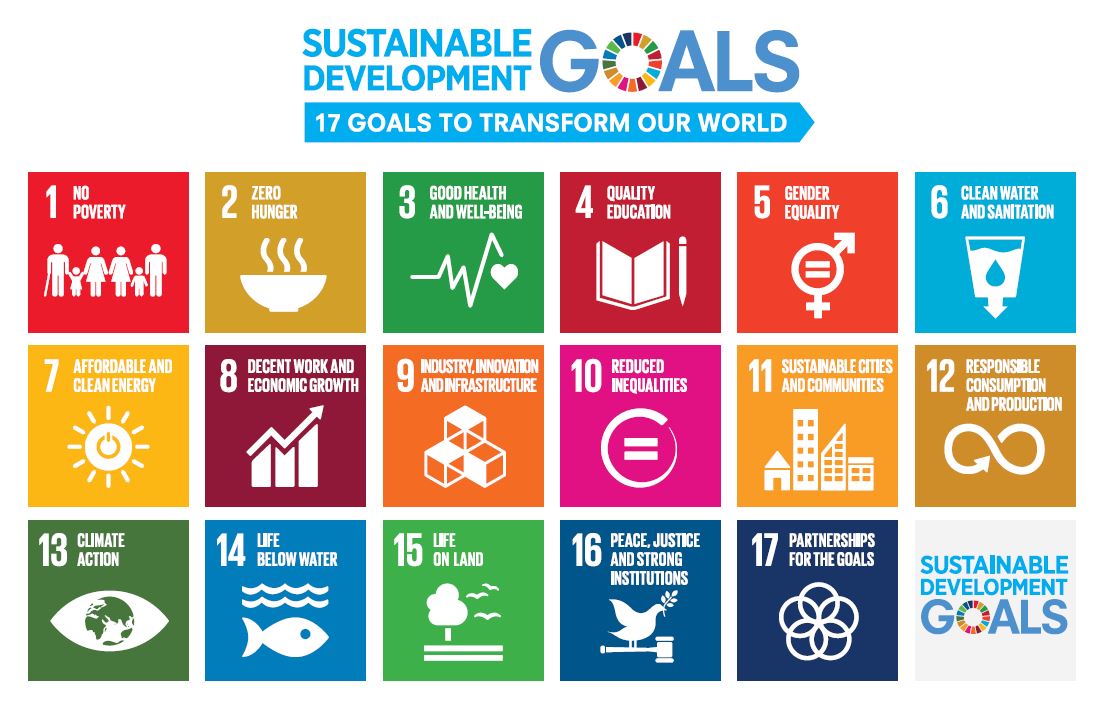
Sustainable Development Goals (SDGs)
Help us understand UNDP’s vision, mission, and key activities.
The United Nations Development Programme (UNDP) is an organization within the United Nations (UN), responsible for development. The UN itself was founded after World War II to promote international co-operation and to create and maintain international order. When many additional—particularly throughout Africa—joined the UN in the 1960s, development was recognized as a paramount priority. UNDP was established in 1966 to support the governance of new independent nations that were founded in Africa and other regions.
Since that time, UNDP has been advocating for human security, as well as supporting the achievement of the “Millennium Development Goals (MDGs)” adopted in 2000. Today, we are aiming to achieve the “Sustainable Development Goals (SDGs) adopted in 2015 at the UN General Assembly and represent the most ambitious effort on development in world history. UNDP is helping integrate diverse efforts internationally, such as on health, energy, work and climate—so that we’re advancing development on all fronts by 2030.
In what ways is UNDP engaged in the field of health?
One of the major pillars of current UNDP health initiatives is HIV. We support people living with HIV who face stigma and discrimination. In addition, we promote effective and inclusive governance for health. Furthermore, we support building resilient and sustainable systems for health. For instance, during the Ebola outbreak, the infection quickly spread in countries such as Sierra Leone, Guinea, and Liberia, causing untold economic damage. We worked closely with the affected countries by establishing a system for properly paying the 50,000 workers who were taking measures against the Ebola outbreak.
Furthermore, UNDP functions as a Global Fund grant interim Principal Recipient supporting the delivery of HIV, TB and malaria programs in 29 nations. We also train local NGOs that support the public health systems in developing nations.
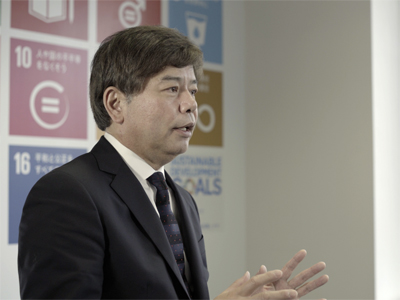
How does UNDP help increase access to health care?
As a UN organization, UNDP helps increase access to public health services by focusing activities under the three pillars for which the UN is responsible: human rights, peace, and development. Specifically, we focus on improving affordability and ensuring availability of health services and health technologies. Under the human rights pillar, we collaborate with other international organizations, such as the World Health Organization (WHO), the Joint UN Program on HIV/AIDS (UNAIDS), the World Bank, multilateral and bilateral donors, private companies, and other developing partners.
Managing access to health care is normally the responsibility of each country’s government. However, not all countries are in a position to execute this function effectively. Many government agencies do not have sufficient capacity to respond to the day-to-day health needs of their populations and ensure that all citizens have access to medical care. Supporting countries to build resilient health systems is one of the important facets of UNDP’s work.
“In order to fight these infectious diseases, GHIT’s work in developing drugs, vaccines and diagnostics, utilizing Japan's highly advanced pharmaceutical capabilities and technologies, is extremely important.”
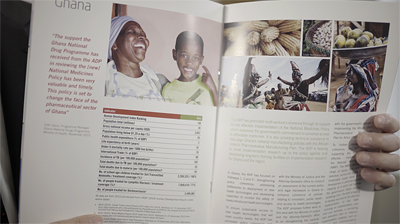
What are the most significant challenges the development community faces in overall efforts to increase and improve access to health tools and care?
The two biggest challenges are devastating diseases that predominantly affect poor populations, and a lack of tools and capacities to prevent, diagnose, and treat them. Diseases such as malaria, TB, and neglected tropical diseases (NTDs) exert significant health burden on both the individual and the health system, and are difficult to treat. Many existing drugs, medical equipment, and vaccinations are losing their effectiveness due to increasing disease resistance. Unfortunately, there is little incentive for pharmaceutical companies to invest in the development of health technologies for these diseases. Moreover, in low- and middle-income countries, even if a new medical technology is developed and made available, the government may not have sufficient capacity or experience to ensure that needed health tools are introduced and effectively delivered to their populations. In such countries, organizing and establishing enabling policies and regulatory frameworks, adequate human resources, and basic infrastructures are needed.
What kind of synergy can we expect from the collaboration between UNDP and GHIT?
The disease areas that benefit most directly from the collaboration between UNDP and GHIT are TB, malaria, and NTDs. There are currently 9.6 million TB patients in the world ; 1.5 million TB patients died in 2014 because they did not have access to appropriate drugs and medical care. As for malaria, 3.3 billion people are living in endemic regions; it is the leading cause of death in children under five years old in sub-Saharan Africa. Regarding NTDs, 1.7 billion people are at risk of at least one NTD. In order to fight these infectious diseases, GHIT’s work in developing drugs, vaccines and diagnostics, utilizing Japan’s highly advanced pharmaceutical capabilities and technologies, is extremely important.
In recent years, cross-border human travel has exponentially increased, and the frequency of contact between humans and animals has also increased. As a result, there is a possibility of a rapid spread of new infectious diseases like Zika or Ebola across many countries. Japan is a major leader in technology innovation and Japanese leadership in the automobile and IT industries is globally recognized. However, Japanese leadership is less recognized in drug development. We believe that making Japan’s advanced health technologies available to the world will make a significant impact on global health and human security. Unfortunately, the public health systems of low- and middle-income countries are still weak, and uptake of new technologies, however useful, is not always straightforward or immediate. For this reason, UNDP is helping to lay the groundwork for country adoption and integration of critically-needed new drugs, vaccines and diagnostics like those being developed by GHIT. To achieve this, UNDP supports health system strengthening. In other words, we are clearing the path to promote effective introduction and scale-up of the new health technologies that are emerging from GHIT’s pipeline.
“While GHIT supports product development, UNDP's strength (particularly through the ADP) is to help create a system that enables effective delivery of new health technologies to patients in need.”
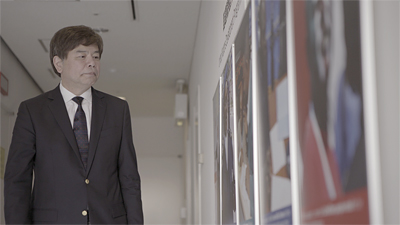
Please tell us about Access and Delivery Partnership that UNDP leads.
The Access and Delivery Partnership (ADP) is an initiative led by UNDP’s HIV, Health and Development Group, which seeks to help improve access to and delivery of new health technologies, including drugs, vaccines, and medical devices. This program originally started in 2013 as a joint effort with the Special Programme for Research and Training in Tropical Diseases (TDR) and a health NGO called PATH, based in Seattle, USA. Examples of past initiatives include supporting Ghana in developing the National Medicines Policy and assisting Indonesia in the introduction of bedaquiline, a new treatment for multidrug-resistant TB. Furthermore, the ADP supported Indonesia’s Ministry of Health in institutionalizing the Health Technology Assessment (HTA) approach which provides a systematic process for evaluating the cost-effectiveness of new health technologies. In Africa, we helped to develop the African Union (AU) Model Law for Medical Products (the AU Model Law). The AU Model Law was adopted by African Heads of State in 2016, and it provides essential guidance for improving the quality and reducing the delay in the introduction of medicines across Africa. While GHIT supports product development, UNDP’s strength (particularly through the ADP) is to help create a system that enables effective delivery of new health technologies to patients in need.
Since GHIT’s establishment, UNDP has been promoting access to and the provision of medical care in low- and middle-income countries. We work in multiple countries to strengthen government capacity for policies, systems and technical capabilities across multiple sectors to promote effective introduction and scale-up of new health technologies. This work is important, and we still have a long way to go. For example, in 2014 only 27% of the 10.8 million people who needed preventive chemotherapy for schistosomiasis in Tanzania were able to receive it through government measures. GHIT is currently promoting the development of a new pediatric formulation for the gold standard treatment for this disease; UNDP’s effort in strengthening the public health system will help ensure the effective delivery of the new pediatric formulation once it becomes available.
What do you see as GHIT’s major successes to date?
GHIT’s very existence is an important accomplishment in and of itself—one that contributes to universal health coverage, for which Japan has been advocating repeatedly in such international forums as the G7 Summit and the Tokyo International Conference on African Development (TICAD). By engaging governments and harnessing the expertise and innovation of pharmaceutical companies, it plays an extremely important role. GHIT has also been remarkably successful in increasing the opportunities for Japanese technology to be applied to global health research and development. Furthermore, GHIT’s work has increased the willingness of the Japanese government to engage more deeply in global health. For example, the Coalition for Epidemic Preparedness Innovations (CEPI) was established at the World Economic Forum in January 2017. The Japanese government’s decision to become involved is largely due to the important role that the GHIT has been playing in increasing awareness from and engagement with government agencies, pharmaceutical companies, and politicians.
“GHIT’s very existence is an important accomplishment in and of itself—one that contributes to universal health coverage, for which Japan has been advocating repeatedly in such international forums as the G7 Summit and the Tokyo International Conference on African Development (TICAD).”
How will UNDP, GHIT, and other stakeholders collaborate to further increase and improve access to medical care over the next 5 to 10 years?
SDG 3 relates to “good health and well-being,” which is inextricably linked to global public health. Universal health coverage across the globe would make a major impact in our ability to achieve this goal. We believe that pursuing activities at the nexus of where health and development meet is the most compelling challenge of our time.
UNDP is well aware of the critical roles that private companies play in efforts to achieve the SDGs. There are many companies that are contributing to the SDGs through philanthropy or charity, but it is also very important for companies to recognize that achieving the SDGs also reinforces their bottom lines. In that sense, much is expected from GHIT, which is a successful model of a public–private partnership, to achieve even larger successes.
It will become important to continue reinforcing each country’s capacity to adopt and deliver the new pharmaceutical products that the GHIT supports, in corporation with various partners, to ensure they reach patients safely, efficiently, and at affordable prices.
Mr. Kondo, you have experienced working with a variety of partners in national, regional, and international What do you see as the critical ingredients of a successful partnerships?
Ultimately, the end goals of the government and the UN are quite similar: to bring smiles back to the faces of people waiting for support by the international community. I believe that a good partnership thrives when decision-makers in government, companies, universities, and media, as well as the general public, remember that global health and international cooperation ultimately supports individuals in local communities.
The affiliations and positions listed in this interview are at the time of publication of the interview in 2017.
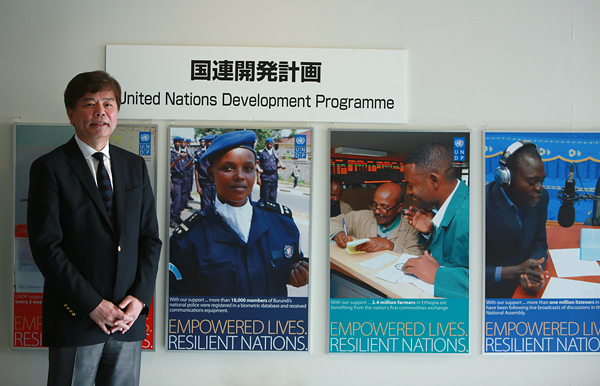
- Biography
- Mr. Tetsuo Kondo assumed his current position as Director, UNDP Representation Office in Tokyo, in January 2014. Prior to this, he was serving as Country Director, UNDP Chad (2010-2013). He also served as Deputy Resident Representative Programme/Operations, UNDP Kosovo (2007-2010); Senior Humanitarian Coordination Advisor, UNMIT Timor Leste (2006); Senior Advisor, UNDP Regional Centre in Bangkok (2005-2006); Special Advisor to the SRSG, UN Mission for Assistance to Iraq (UNAMI), Amman and Bagdad (2004); Special Advisor/Senior Programme Advisor, Bureau for Resources and Strategic Partnerships (BRSP), UNDP New York (2001-2004).
Before joining UNDP, he held various positions with the Ministry of Foreign Affairs of Japan (MoFA): Vice-President of UNDP/UNFPA Executive Board (Representative of Western Europe and Others Group) (2000), First Secretary in the Permanent Mission of Japan to the United Nations, New York (1996-1999); Assistant Director, Law of the Sea Office, Treaty Bureau, MoFA (1992-1996); UN Bureau (1989-1992); Embassies of Japan in Zaire (DRC) (1986-1989) and France (1982-1986); Treaty Bureau, MoFA (1981).
Tetsuo holds a Masters-equivalent degree from Jones International University, USA and a B.A. in Economics from Tokyo Metropolitan University, Japan. He currently also serves as an Adjunct Professor (Global Health Policy) at the University of Tokyo (2011- ).
STAKEHOLDER INTERVIEWSARCHIVES
FUNDING
-
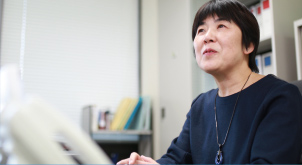
01
Dr. Naoko YamamotoSenior Assistant Minister for Global Health,
Ministry of Health, Labour and Welfare
#
-
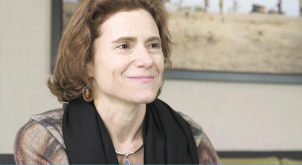
02
Dr. Hannah KettlerSenior Program Officer, Life Science Partnerships
Global Health Program, Office of the President
Bill & Melinda Gates Foundation
#
-

03
Prof. Stephen CaddickDirector, Innovations Division,
Wellcome Trust
#
DISCOVERY
-
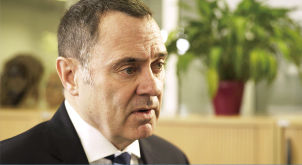
01
Dr. David ReddyCEO
Medicines for Malaria Venture (MMV)
#
-
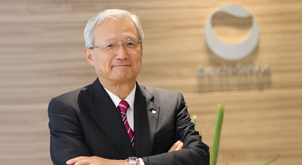
02
Mr. George NakayamaRepresentative Director,
Chairman and CEO
Daiichi Sankyo Company, Limited
#
-
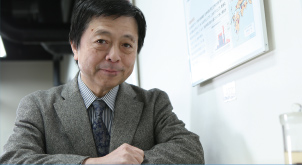
03
Prof. Kiyoshi KitaProfessor Emeritus, The University of Tokyo
Professor and Dean, Nagasaki University School of Tropical Medicine and Global Health
#
DEVELOPMENT
-

01
Mr. Christophe WeberRepresentative Director, President and CEO
Takeda Pharmaceutical Company Limited
#
-
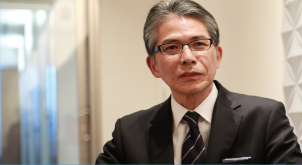
02
Mr. Yoshihiko HatanakaRepresentative Director,
President and CEO
Astellas Pharma Inc.
#
-

03
Dr. Nathalie Strub WourgaftMedical Director
Drugs for Neglected Diseases initiative (DNDi)
#
ACCESS
-
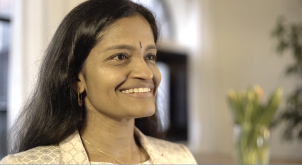
01
Dr. Jayasree K. IyerExecutive Director
Access to Medicine Foundation
#
-
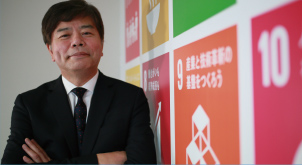
02
Mr. Tetsuo KondoDirector
United Nations Development Programme (UNDP)
Representation Office in Tokyo
#
-
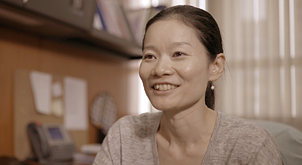
03
Dr. Aya YajimaTechnical Officer
Malaria, other Vectorborne and Parasitic Diseases Unit
Division of Communicable Diseases
World Health Organization Western Pacific Regional Office
#
POLICY
-
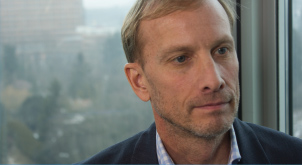
01
Dr. Mark DybulFormer Executive Director
The Global Fund to Fight AIDS,
Tuberculosis and Malaria
#
-
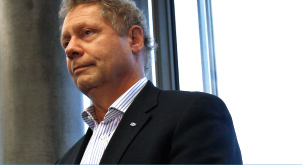
02
Dr. Seth BerkleyCEO
Gavi, the Vaccine Alliance
#
-
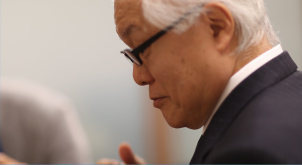
03
Hon. Prof. Keizo TakemiMember of the House of Councillors of Japan
Chairman, Special Committee on Global Health Strategy
of the Liberal Democratic Party's Policy
#

